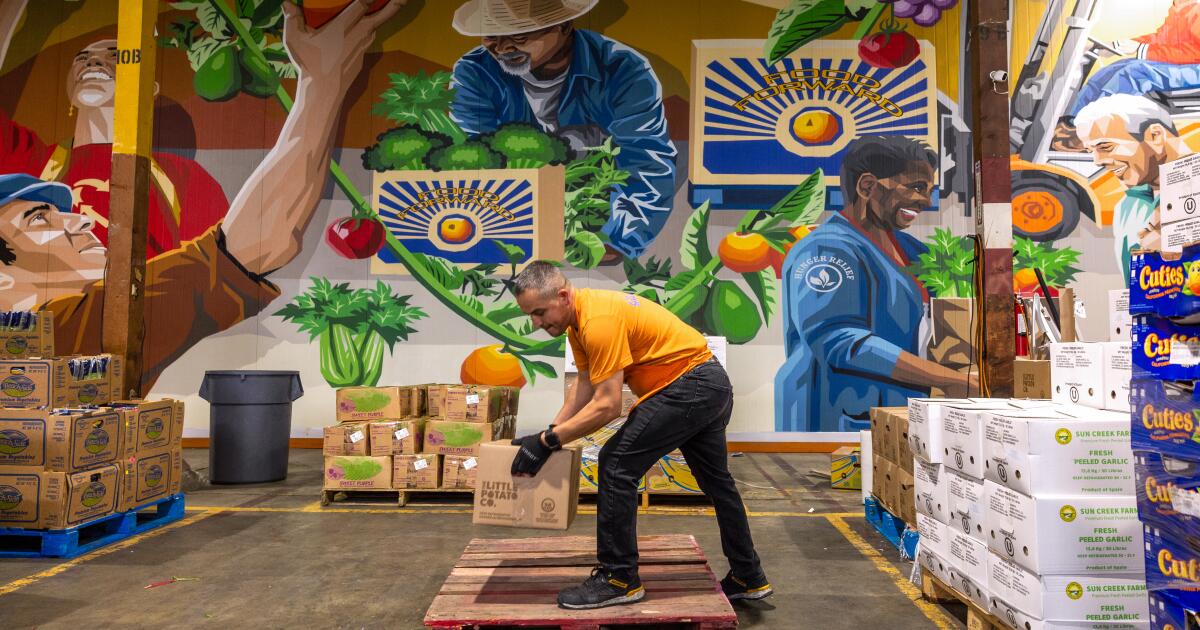It’s 4:30 a.m. on a Tuesday and the lights are blazing at Food Forward’s Pit Stop warehouse.
Big trucks are lining up waiting their turn while forklifts whiz around the loading dock, pulling pallets of donated asparagus, lettuce and strawberries off one truck or pushing boxes of purple potatoes, green beans and heirloom tomatoes onto another headed to needy clients later in the day. Everything moves fast at Food Forward — a nonprofit devoted to redistributing produce that would otherwise go to waste — because fruits and veggies don’t last. When you’re moving tons of food at the edge of its usefulness — an average of 250,000 pounds or 125 tons every day — no one can afford to dawdle.

The whole point of this hustle is to get food that would otherwise be wasted to hunger relief groups, who get the produce for free and must distribute it for free as well, without imposing any rules like listening to prayers, making donations or joining a club. Food Forward works with some 250 nonprofit groups to get it done, serving 13 counties in Southern and Central California along with seven states and tribal lands when there’s too much surplus for regional groups to handle. So even though it’s dark and cold, Food Forward driver Lupe “Papi” Rodriguez is smiling as he gets ready to pick up pallets of unwanted fruits and veggies from wholesale produce vendors.
“I enjoy my work,” said Rodriguez, who drove a produce truck for 20 years before joining Food Forward in 202.
















